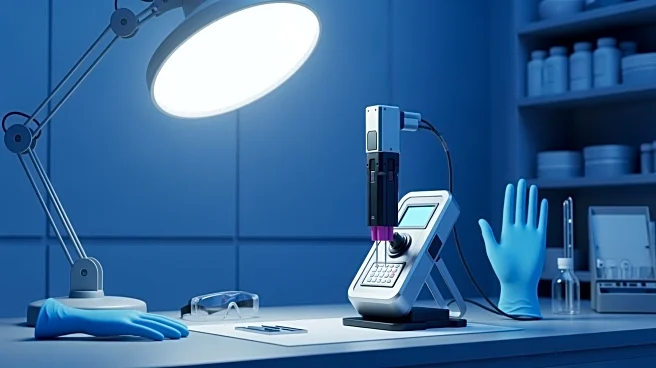What's Happening?
Intellia Therapeutics has announced the suspension of two late-stage CRISPR gene-editing trials following the hospitalization of a patient due to liver damage. This development has led to a significant
drop in the company's stock, which fell over 35% in morning trading. Liver damage is a recognized risk associated with CRISPR-based therapies, particularly because these treatments often target genes within the liver. Despite this known risk, Intellia had previously reported minimal serious safety issues across its trials, which have involved hundreds of patients. This pause in trials highlights the ongoing challenges and risks in developing CRISPR-based treatments, as similar concerns have led other companies, such as Verve Therapeutics, to alter their development strategies.
Why It's Important?
The suspension of Intellia's trials underscores the complexities and potential risks involved in advancing CRISPR gene-editing technologies. As these therapies are at the forefront of medical innovation, their success or failure can significantly impact the biotechnology industry and patient treatment options. The liver damage incident may prompt increased scrutiny and caution in the development of gene-editing therapies, potentially affecting investment and regulatory approaches. Companies involved in similar research may need to reassess their safety protocols and trial designs to mitigate risks, which could slow the pace of innovation in this field. Patients awaiting new treatments for genetic conditions may face delays as companies navigate these challenges.
What's Next?
Intellia will likely conduct a thorough investigation into the cause of the liver damage and assess the safety of its CRISPR therapies. The company may need to modify its trial protocols or explore alternative approaches to ensure patient safety. Regulatory bodies could impose stricter guidelines for gene-editing trials, affecting the timeline for bringing these therapies to market. Other biotech firms may also reevaluate their strategies in light of Intellia's experience, potentially leading to collaborations or shifts in focus to address safety concerns. The broader industry will be watching closely to see how Intellia and others respond to these challenges.
Beyond the Headlines
This incident raises ethical questions about the balance between innovation and patient safety in cutting-edge medical research. As gene-editing technologies advance, the industry must navigate the moral implications of altering human genes, particularly when unforeseen risks emerge. The situation may spark discussions on the ethical responsibilities of biotech companies and the need for transparent communication with patients and stakeholders about potential risks and benefits.









